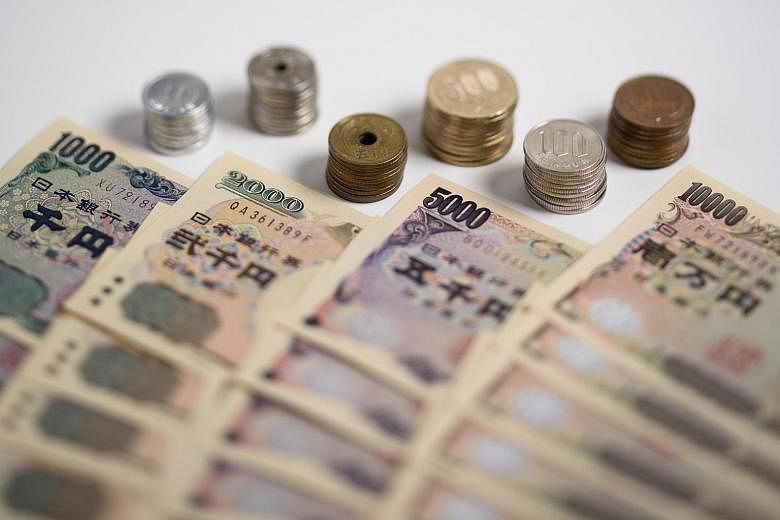TOKYO (REUTERS) - Japanese Prime Minister Shinzo Abe will convene an advisory panel to consider an extra budget for the coming fiscal year, sources told Reuters, days after the Group of 20 nations urged more fiscal spending to support the ailing global economy.
Abe will announce the plan later on Tuesday (March 1), the sources said.
Financial market turmoil and economic contraction at the end of last year have increased pessimism about Japan's domestic demand, but rising tax revenue and falling bond yields suggest it now has more leeway to spend.
Finance Minister Taro Aso told reporters on Feb 23 that he would not rule out compiling a stimulus package for fiscal 2016/17, which starts from April.
"If there are changes in the economy, then it's natural to respond with an extra budget," said an official involved in fiscal policy, who told Reuters the government was seriously leaning toward more spending. "Cash handouts for pensioners have only just started, but this could be an option," the official said, referring to a policy that will start next month.
Timing was not yet clear on an extra package, he said, though ruling party heavyweight Toshihiro Nikai has said he suspected it was being prepared ahead of elections expected in July.
Abe advisor Masahiko Shibayama has also said the next package could include spending on childcare and elderly care to reduce the burden on the working population.
Economists are building extra spending into their forecasts.
"We are already factoring in an extra budget for money to be spent in fiscal 2017," said Masamichi Adachi, senior economist at JP Morgan Securities. "Nominal growth is good, and tax revenue is nominal, so the government should have enough money to spend."
A spending boost could also offset the coming blow from a rise in sales tax to 10 per cent from 8 per cent in April 2017.
The government tried the same thing when it raised the tax to 8 per cent from 5 per cent in 2014, but its 5.5 trillion yen (S$68.4 billion) stimulus package was not enough to stop a recession.
At a weekend summit the G20 sided with the doves by calling for more fiscal spending and less reliance on monetary policy to help the fragile global economy, which some investors say has reached its limit after years of quantitative easing and negative real interest rates.
BOJ Governor Haruhiko Kuroda has supported that position, saying each country has agreed to use all available policy tools.
Abe's new advisory panel will meet about five times before Japan hosts a Group of Seven summit in late May, and Japan hopes its debate on an extra budget will encourage other countries to shift away from fiscal austerity, sources said.
"This may not influence Europe, but China, South Korea and other Asian countries could follow Japan's spending approach,"said Hiroshi Miyazaki, senior economist at Mitsubishi UFJ Morgan Stanley Securities.
Separaely, a senior economic adviser to Abe said on Tuesday that Japan may need to undertake "sporadic intervention" in the currency market to limit the yen's gains.
Professor Koichi Hamada, an emeritus professor of economics at Yale University, said in an opinion piece for the Japan Times that the yen exchange rate had been determined by monetary policy in recent years, and had not been manipulated by intervention.
He welcomed this approach "in general" and did not recommend major intervention to direct the yen exchange rate.
"I do, however, believe that sporadic interventions may be needed to punish speculators who are taking advantage of temporary market psychology to keep the yen far above its market value," he wrote.
Prof Hamada wrote that the adoption of negative interest rates in late January quickly cut borrowing costs, as expected, but the policy's effects on the yen and the stock market had been an "unpleasant surprise".
He said markets had not welcomed the adoption of negative rates as they should have. The stock market took negative rates as "a harbinger of greater financial risk" and speculators stayed bullish on the yen.
The Finance Ministry said on Monday that Japan did not intervene in currency markets between Jan 28 and Feb 25, even as the yen looked set to post its biggest monthly gain since October 2008 last month.

